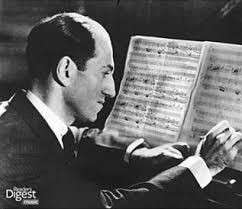REVIEW POTPOURRI: Christmas music
 by Peter Cates
by Peter Cates
Christmas music
Reader’s Digest released a number of record sets devoted to Christmas music, one being a 1985, two LP set Joy to the World. It contains two sides of 15 famous carols performed with decent professionalism by the Royal Philharmonic Orchestra and Chorus conducted by Peter Knight (1917-1985); Knight’s name might be familiar to fans of the Moody Blues as he scored the strings for the group’s album Days of Future Passed.
Side 3 is devoted to a lushly overdone Christmas Suite for Orchestra consisting of the tried and true seasonal pop songs – Rudolph the Red-Nosed Reindeer, Irving Berlin’s White Christmas, Winter Wonderland, Leroy Anderson’s Sleigh Ride, etc., with Waldtaufel’s classical Skater’s Waltz tacked on the end.
Side 4 has organ and bells instrumentals of The First Noel, Schubert’s Ave Maria, Good King Wenceslas and a couple of others. Nice arrangements in very small doses.
Caribbean Calypsos
A 1956 Capitol album (T 10071) Caribbean Calypsos features three vocalists – Tony Johnson and a singer simply known as the Torpedo, both men natives of Jamaica; and the older Lord Beginner (1904-1981) who came from Port of Spain, Trinidad.
The selections have such titles as I Will Die a Bachelor, Wheel and Turn Me, Don’t Fence Her In, Lazy Janie and Queen Elizabeth Calypso. And the lyrics evoked the peaceful contentment of life then in both islands while downplaying its difficulties.
The birth names of Lord Beginner and the Torpedo, respectively, were the good old-fashioned English names of Egbert Moore and Nevil Cameron and were zealously kept a secret from their fans in the island. Lord Beginner sold more records than any other Calypso singer, save for Harry Belafonte who surpassed him by a narrow margin.
Interestingly, as of the mid-50s, all three singers were residing in England.
Wienerwalzer Paprika
Wienerwalzer Paprika (Mercury MG50190) is an LP recorded during the summer of 1958 at the Vienna Konzerthaus Grosse Saal, one of the grand buildings erected during the reign of Austro-Hungarian Emperor Franz Joseph to function as a concert hall and still in use, most famously as the location of the Vienna Philharmonic New Year’s Eve concerts broadcast worldwide.
The album doesn’t contain a single waltz by Vienna’s immortal Waltz King Johann Strauss Junior (1825-1899), instead focusing on six waltzes by as many composers:
1. Josef Lanner (1801-1835) – Die Schonbrunner Waltz; btw, Lanner, who was a self-taught violinist, formed a quartet to earn money performing at social gatherings and his second violinist was Johann Strauss Senior (1800-1849).
2. Josef Strauss (1827-1870) – Village Swallows Waltz; Josef was the younger brother of the Waltz King.
3. Emil Waldtaufel (1837-1915) – The Skater’s Waltz. This classic was conducted with more musicality than the above-mentioned rendition in the Reader’s Digest set.
4. Franz Lehar (1870-1948) – Merry Widow Waltz. I own numerous recordings of Lehar’s perpetually charming music for his Viennese operettas, the Merry Widow being quite rightfully his most famous.
5. Erno Dohnanyi (1877-1960) – Wedding Waltz. Dohnanyi was also a noted pianist, conductor and teacher in Budapest and, during his last ten years, at the University of Florida in Tallahassee.
During the Nazi occupation of Hungary, Dohnanyi’s personal intervention saved the lives of several dozen Jewish musicians. His son Hans was an admiral in the German navy but took an active role in the anti-Nazi resistance, as did his daughter’s husband, the renowned theologian Dietrich Bonhoffer; both men were arrested by the Gestapo and later executed.
Hans’s son Christoph Dohnanyi became Music Director of the Cleveland Orchestra from 1984 to 2002 and is still active at the age of 94.
6. Emmerich Kalman (1882-1953) – The Gypsy Princess Waltz. Kalman was completing the Gypsy Princess in Budapest in 1915, while World War I was raging around him and, since its premiere in Vienna, the Operetta has been produced over 8,000 times worldwide.
Antal Dorati (1906-1988) conducted performances of vivid distinction while Mercury’s then-revolutionary technique of using one microphone placed strategically in the hall captured a full range of sound with tremendous clarity.
Responsible journalism is hard work!
It is also expensive!
If you enjoy reading The Town Line and the good news we bring you each week, would you consider a donation to help us continue the work we’re doing?
The Town Line is a 501(c)(3) nonprofit private foundation, and all donations are tax deductible under the Internal Revenue Service code.
To help, please visit our online donation page or mail a check payable to The Town Line, PO Box 89, South China, ME 04358. Your contribution is appreciated!



Leave a Reply
Want to join the discussion?Feel free to contribute!